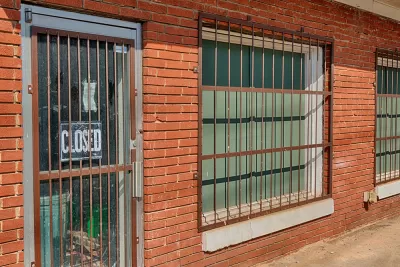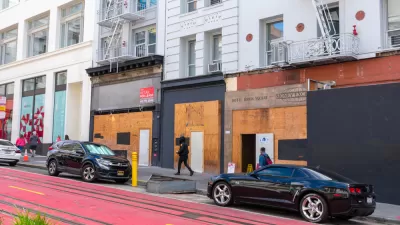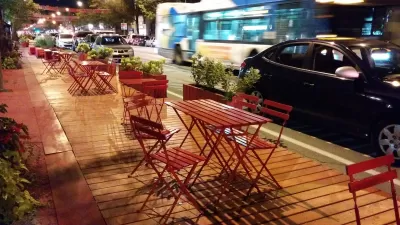Research suggests that more and more parking won't solve the woes of struggling commercial corridors, even if it's difficult for business owners located on those corridors to believe.

Colin Stewart shares analysis of the relationship between parking and commercial activity—inspired by the ongoing debate about how to mitigate high commercial vacancies in Montreal, Quebec.
The Chamber of Commerce of Metropolitan Montreal has proposed more parking, based on feedback from 261 business owners in the city.
"This intuitively makes sense," writes Stewart, "we’ve all had to buy heavy or cumbersome items that are impractical to lug home without a car. Seen in this light, businesses practically can’t function without a vehicle, and a vehicle practically can’t function without a place to park it. More parking, therefore, should mean more business."
More parking for more business is a common argument in almost every city, even in cities located in the country directly to the south of Canada. "However, looking into the data a bit further revealed a different truth," writes Stewart.
The analysis by Stewart's team at Local Logic, a Montreal-based urban planning data consultant, finds that streets with the lowest amount of available parking in the city have the lowest vacancy rates, and vice versa. "These findings may seem counter-intuitive. But there are a number of reasons why parking may not help retail business, and can even be harmful," according to Stewart.
To help build the case, Stewart cites data that show parking to be an inessential component of retail streets—with examples from Philadelphia, New York City, and the United Kingdom.
FULL STORY: Does more parking bring more business?

Planetizen Federal Action Tracker
A weekly monitor of how Trump’s orders and actions are impacting planners and planning in America.

Congressman Proposes Bill to Rename DC Metro “Trump Train”
The Make Autorail Great Again Act would withhold federal funding to the system until the Washington Metropolitan Area Transit Authority (WMATA), rebrands as the Washington Metropolitan Authority for Greater Access (WMAGA).

The Simple Legislative Tool Transforming Vacant Downtowns
In California, Michigan and Georgia, an easy win is bringing dollars — and delight — back to city centers.

Supporting Cycling Takes More Than Just Bike Lanes
Safe, protected bike lanes are a key part of a city’s bike infrastructure — but secure parking, e-bike charging, and other amenities can also influence people’s shift to cycling.

Judge Blocks Anti-DEI Rules for Transportation, Housing Grants
A second injunction blocks the Trump administration from enforcing new regulations for federal funding.

Unhoused People in San Jose Could Face Arrest if They Refuse Shelter
A policy proposed by the city’s mayor would give law enforcement the option to arrest homeless residents if they refuse three offers of housing.
Urban Design for Planners 1: Software Tools
This six-course series explores essential urban design concepts using open source software and equips planners with the tools they need to participate fully in the urban design process.
Planning for Universal Design
Learn the tools for implementing Universal Design in planning regulations.
Smith Gee Studio
City of Charlotte
City of Camden Redevelopment Agency
City of Astoria
Transportation Research & Education Center (TREC) at Portland State University
US High Speed Rail Association
City of Camden Redevelopment Agency
Municipality of Princeton (NJ)





























